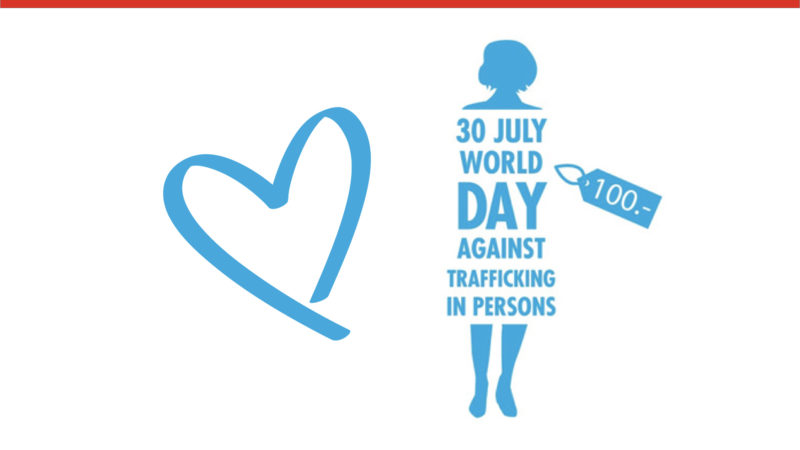
When the woman offered Njida, a 19-year-old Nigerian girl, a safe place to stay, she was grateful. After being abandoned by her parents and witnessing the murder of the woman who raised her, Njida was homeless and in constant fear that her carer’s murders would also come for her. But instead of offering support and refuge, the woman used Njida’s fear and vulnerability to exploit her. Njida was trafficked to the UK, where she was told – as countless other girls have been told – that she must have sex with men for money to pay back her traffickers for the journey. Njida endured months of incredible violence and intimidation before she managed to escape.
Njida’s story is one of many cases dealt with by BAWSO, a Welsh charity that supports BAME victims of abuse, including forced marriage, prostitution and human trafficking. I interviewed Njida’s caseworker before I was elected to public office. Her case, and so many cases like hers, stays with me. I cannot forget and we cannot ignore people like Njida.
Every year, an estimated 20 million people are victims of modern slavery and human trafficking. Women and girls are disproportionately affected, accounting for the overwhelming majority of victims of sex trafficking and a significant proportion of forced labour victims.
Today, on the World Day Against Trafficking in Persons, we must renew our push for progress on tackling human trafficking and demand justice and protection for victims. EU-wide action to tackle human trafficking is imperative and yet another reason, among many, why the UK must stay in the EU.
In my first week as the Labour MEP for Wales, I met with Myria Vassiliadou, the EU Anti-Trafficking Coordinator, to discuss the next steps in the fight against human trafficking, particularly sex trafficking of women and girls. My maiden speech in the European parliament condemned human rights violations in US migrant detention centres and the (often sexual) abuse and harassment of women and girls there, many of whom are victims of human trafficking.
Wales is leading progress on anti-trafficking efforts in the UK, with advanced coordinated training for healthcare workers, solicitors and police through the Wales national training framework on human trafficking. Training focuses on giving staff the skills to identify victims and safeguard children.
Whilst there has been significant progress in some areas, the UK’s fragmented approach is still severely lacking. There is inconsistent support for victims across regions, low conviction rates for traffickers and abusers, and monitoring mechanisms are virtually non-existent. Anti-human trafficking actions appear to be limited to immigration and crime-prevention policies, which lack emphasis on victims’ rights and protections and fail to address the root causes and dismantle perpetrator networks.
The combination of austerity measures, the ‘hostile environment’ and a backlash against migrants has contributed towards the increased vulnerability of victims and a closing down of avenues to citizenship and access to support. Perpetrators rely on the demand produced by restrictive routes to migration and citizenship and an environment of impunity where reporting and conviction rates are low.
Just this month, an official Home Office policy and information note stated that Nigerian women trafficked to Europe returned home “wealthy from prostitution, enjoy high social-economic status and in general are not subject to negative social attitudes on return”. The government’s dismissal of the violent, exploitative and traumatic experiences of victims of rape and sexual violence must be condemned in the strongest terms.
This worrying trend is made all the more pressing as Brexit looms ever closer. Leaving EU agencies like Europol and Eurojust will undermine the close cooperation needed to tackle cross-border trafficking. Vital cross-border mechanisms supporting victims of violence and exploitation like the European Arrest Warrant may be repealed and key rights and protections will no longer be secured by the EU Human Trafficking Directive.
We need to remain part of a strong and ambitious EU action to stop cross-border human trafficking and protect victims from abuse and exploitation, regardless of where they come from. We must put victims first by guaranteeing support and routes to citizenship for victims across the UK, by training public services and local authority staff to recognise hidden victims, and by dramatically stepping up conviction rates for perpetrators and the support mechanisms available for survivors.
I will continue to fiercely oppose Brexit and the devastating impact of austerity, the hostile environment, anti-migrant rhetoric and fight for policies to protect victims of human trafficking and forced labour. We must act together to stop human trafficking, protect and support victims, and bring perpetrators to justice. As MEP for Wales this will be deeply engrained in my parliamentary work and stands as a top priority for my mandate.
In the UK, for help or to report a crime please go to modernslaveryhelpline.org/helplines.




More from LabourList
Almost half of Labour members oppose plans to restrict jury trials, poll finds
‘How Labour can finally fix Britain’s 5G problem’
‘The University of the Air – celebrating 60 years of Harold Wilson and Jennie Lee’s vision’